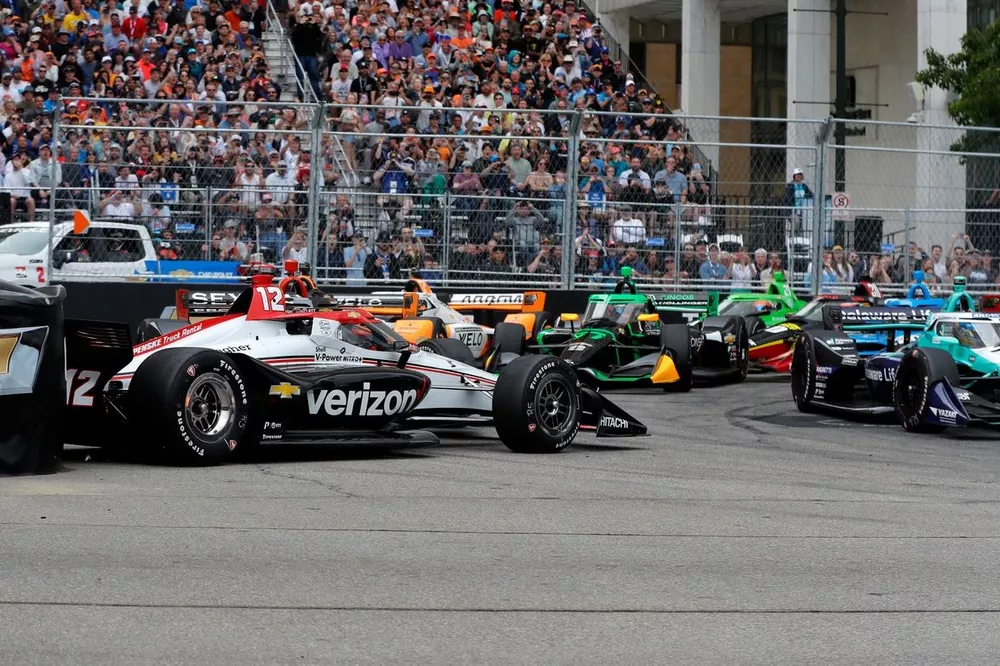
McLaren CEO Zak Brown has emphasized the need for the IndyCar Series to prioritize the quality of its races rather than just focusing on the number of races.

In recent seasons, several races have fallen short of expectations due to ill-advised passes resulting in numerous cautions, which detracted from the events.
IndyCar has been promoting the total number of passes (TP) and passes for position (FP) in races. For example, last year’s season finale at Laguna Seca had 432 TP and 264 FP but was marred by eight cautions for contact, spanning 35 of the 95 laps, and resulted in eight penalties for avoidable contact.
This year at Laguna Seca, there were 564 TP and 537 FP, with three of the five cautions (14 laps under yellow) due to contact. Meanwhile, the Detroit race was chaotic, with 47 of the 100 laps under caution from eight yellow flags due to collisions, and five penalties for avoidable contact. That race had 217 TP and 170 FP.
The introduction of the hybrid unit at Mid-Ohio Sports Car Course has seen mixed results over four races, with 652 TP and 390 FP, and 16 lead changes occurring through pit cycles rather than on-track.
The Toronto race, despite limited passes, was also disrupted by five cautions (including a red flag) due to contact.
In an exclusive interview with Motorsport.com, Brown discussed his concerns about the quality of racing with the midseason introduction of the hybrid unit, especially with a new network TV deal with FOX on the horizon for 2025.
“Hats off to Max Papis (race steward) and Jay Frye (president of competition and operations) because they listen well,” Brown said. He noted the need for improvements in race execution, citing Detroit and Laguna as poorly executed races due to issues with restarts and procedures.
Brown suggested that harsher penalties for drivers making errors could improve the racing quality, as the current penalties are not stringent enough to deter overdriving and irresponsible overtaking.
“We also need to more penalize the drivers when they make an error,” Brown said. He proposed penalties that would impact drivers more significantly, such as adding time to their next pitstop, to discourage reckless moves.
Brown also mentioned the importance of balancing the number of passes with racing quality, pointing to Formula 1 as an example of high-quality racing with fewer passes compared to the chaotic races at Laguna and Detroit.
Furthermore, Brown suggested reducing the field size to improve race quality. “We need to shift into quality versus quantity,” he said, advocating for fewer cars with higher quality rather than focusing on the sheer number of cars.
In summary, Brown believes that by addressing these issues, IndyCar can enhance the overall quality of its racing product.
Leave a Reply